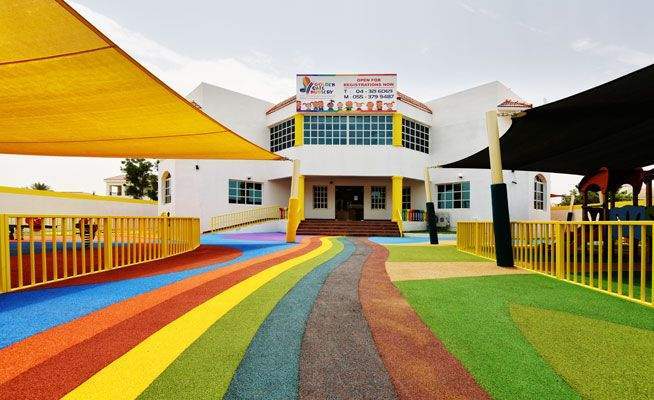
Are you seeking a teaching facility for your little one or an infant care unit for your toddler? Then, you can conveniently find such institutes near your home and workplace. Despite being available in a walking distance, you can’t select the one on the basis of easy accessibility. Rather, you have to consider a few important factors like total hours, transportation, average class size, staff/student ratio and cost to make a confident decision. Also, don’t forget to ask about the application procedure and deadline to complete the admission process. Don’t mistakenly assume that you will be able to take the decision in a jiffy.
You may be feeling happy and excited to send your son/daughter to a preschool or childcare facility, as early education has become essential to groom children to face the challenges. If you want to select the best nursery with the most desirable features for him/her, then don’t ignore asking a few questions from yourself, as self-awareness is mandatory to make the right decision.
Below I am sharing a few important questions parents should ask themselves, even before starting a negotiation with the management.
1. What kind of environment are you searching for?
Before you even visit any facility to speak to management staff; focus on your child’s needs. Consider his age to identify the needs. If he is under the age of one year, a place offering a nurturing environment will be the best option. In contrast to that toddler with an age of more than one year are capable of adjusting the setting that let them play, eat, sleep and socialize with other classmates. Don’t hesitate to ask them about providing toilet assistance, as most of the toddlers are not potty trained. Also, consider the fees and proximity to your home or workplace to make the best selection without breaking your budget.
2. Does the teaching system seem suitable?
Once you reach there, carefully observe the overall environment, facility infrastructure and level of happiness among teaching staff and students in the classroom. Are they participating in different activities at school? Can you imagine these activities will efficiently engage your tot and groom him for the future?
3. Do you find the environment thriving?
Almost every preschool conduct tours during open hours for parents. No matter how alluring information is provided in the brochures, you should not ignore attending these events. This is the only way you can actually decide whether the environment is offering something worthy for kids or not.
4. What kind of teaching philosophy is used?
Teaching philosophies are the methods which are followed to promote learning. Generally, preschools implement play-based activities, Montessori Method, the Reggio Emilia system, the Waldorf approach. Whereas, others also introduce reading and mathematics even in early classes. Being a parent you better understand the psychology of your younger one. However, you can always discuss it with the teacher.
5. What is the maximum number of students in one class?
Clearly, ask nursery management about the average class size and number of students a single teacher usually deals with. Ideally, one teacher should not look after or teach more than 3 or 4 toddlers at a time. As learners are too young to be left alone, they need the undivided attention of an adult throughout their stay. Ensure this before finalizing the decision, otherwise, your child will be ignored.
6. What is your gut feeling?
Be honest with yourself and don’t ignore the inner feeling. If you find a place uninviting, cold and institutional, how a toddler could adjust there. Also, check the cleanliness of the facility you are visiting. How they decorate the walls and classrooms? Does a facility possess a gym, an indoor play area or an open yard to engage kids in physical and sporting activities? How frequently teachers are taking them there?
7. How they maintain discipline?
Although preschoolers are too young to follow and memories instructions, a good nursery efficiently maintains a satisfactory level of discipline among children. To motivate such small age tots, they keep on encouraging kids continuously on showing positive behavior. They give special rewards and small surprise gifts to build up good habits in little ones. Parents are also encouraged to visit and observe a positive change.